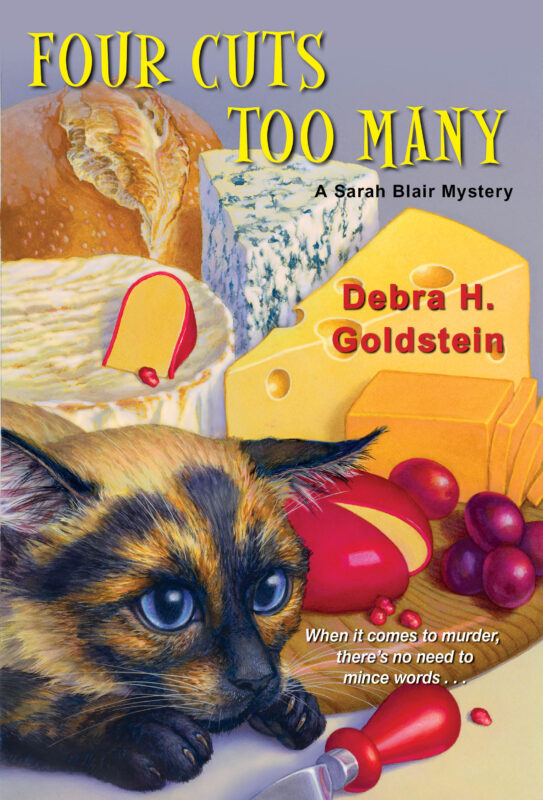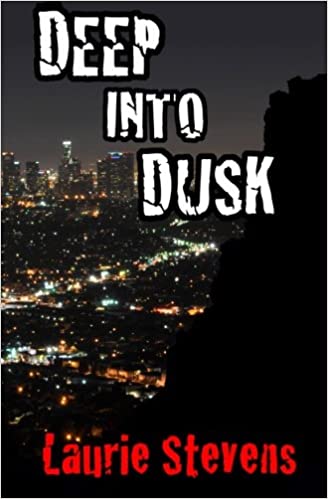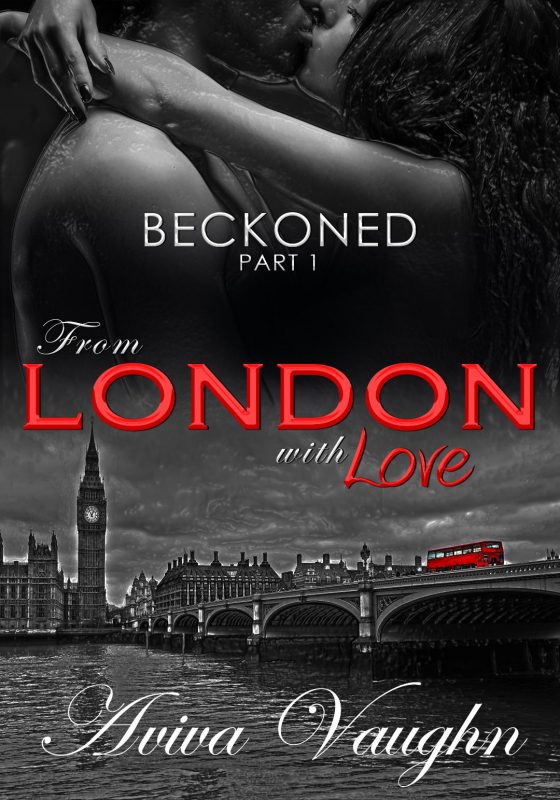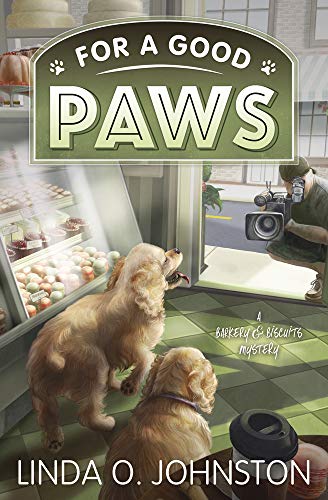What to write VS How to write
July 19, 2009 by Marianne H. Donley in category Archives tagged as Member At Large, Monica StonerMonica Stoner, Member at Large
Years ago I had the great good fortune to attend a weekend workshop with Paul Gillette. In the process of having our work analyzed, he brought up the concept: “I can teach you HOW to write but I can’t teach you WHAT to write.” It sounded quite wise, and as he was saying this in praise of something I had submitted I tucked the concept away to consider later.
Come forward through years of writing and not writing, into a time when of new experiences. I’ve had the great good fortune of judging contests. I am amazed at the quality of work entered. Even though not everything is ready to submit, it’s clear these people have put a lot of thought into their work, and have the principles of formatting, sentence structure and basic usage down pat.
Every now and then, though, I review an entry lacking in all those basic writing skills but so rich in story I’m stunned. Just as rarely I read something perfectly crafted, showing great skill in word choice yet totally lacking in imagination. Finally, I understand what Paul Gillette was telling us. Anyone can learn to write with an acceptable level of skill but not everyone can come up with a story that grabs at the reader and demands we drop everything else to finish the book.
Who would have the easier task for improvement – the person with the excellent skills but ordinary story, or the person with the great story but little idea how to organize her thoughts into words? I’m not really sure, both have a hard road ahead of them. A lot will depend on how badly they want to write, and how much it means to them to finish the book. Then the next book.
Happy writing
0 0 Read moreStaying Grounded While in the Air
June 19, 2009 by Marianne H. Donley in category Archives tagged as Member At Large, Monica Stonerby
Monica Stoner, Member at Large
Since the end of May I have been in four states, flying back and forth from my New Mexico home. I’ve visited three new towns and encountered four new airports. I wonder how people can do this month after month, I’m certainly looking forward to staying in one spot, sleeping every night in my own bed and eating New Mexico food. There truly is no place like home. The supporting thread in all of this is, guess what?, books. I check for book stores in every airport – there’s actually a used book kiosk in the Raleigh Durham airport. Every airport has at least one chain book store, some stocked better than others. Looking around in the waiting areas and on the planes, in every row at least one person has their nose firmly planted in a book. Yesterday I watched a professionally dressed gentleman at the courtesy vehicle stand with his attention firmly on the hard backed book in his hands.
Certainly the first thing I pack is reading material, and I often make a trip to the local book store to stock up for a trip. At one time I tried to bring along an “important†book, thinking this was an opportunity to read something I “should†read. But I also bring along books I want to read, and those are the ones I reach for first. After a while I decided to save the weight.
This is a thankyousomuch to all those who get their books finished and published. They keep us going through times bad and good. Their imagination takes us away from ourselves for at least that brief period of time, and often beyond that. I was reading the Mercy Thompson books while in Washington state, and found a connection to the dense forests I drove through. Of course this also means I plot scenarios in new locations. If you hear about bizarre things happening to people forced to spend the night in an airport, there’s a possibility I finally stopped long enough to finish a thought, finish a book and get it to a publisher. Keep writing!
0 0 Read moreIs it Romantic?
May 20, 2009 by Marianne H. Donley in category Archives tagged as Member At Large, Monica Stonerby
Monica Stoner, Member at Large
We throw around titles of the most romantic books, plays, movies, stories. Gone with the Wind is a major favorite, along with the tales of King Arthur’s round knights. Mustn’t forget some of the musicals – My Fair Lady, Camelot (Arthur again) and of course Phantom of the Opera. I find Weber’s music helps words come through my fingers and often ignore the words for the tunes.
Recently I listened to Phantom when I wasn’t writing and could pay attention to the words. This is romantic? We have a lovely young woman terrorized by a mysterious man yet when she tries to tell her story, she’s told he doesn’t exist. Even the man who will become the love of her life insists she doesn’t know what she’s talking about. According to him she needs to forget her fantasies and let him make all her decisions. Supposedly they live happily ever after but one wonders how often Christine is encouraged to ignore her own thoughts and blindly follow the man’s.
Camelot, that classic tale of love is actually about an inconvenient marriage and a woman who can’t keep her word. Yes, Lancelot betrays his king but Guinevere is the woman who made an advantageous marriage then got restless when someone cuter came along. This is romance?
Gone With the Wind doesn’t do much for me as romance, though as a tale of living through a social upheaval it’s marvelous. I’ve never found Scarlet to be a sympathetic character.
How much of what was once thought extremely romantic can stand up to current thinking? For years the pattern of popular romance was a domineering male and the pure, honest, but plucky virgin. Of course the male was a prince or knight or lord of the manor, later a captain of industry. Quick – how many of those books can you remember as individual stories instead of one in a group of many? Right, same here. But how many of the books that stay with us are about the domineering male who gets taken down a peg or ten by the plucky heroine?
My most romantic book? Probably Mary Stewart’s “My Brother Michael.” Without deep soulful kisses or heavy breathing clinches, at the end of the book there is no doubt these people have made a commitment to each other. But Sharon and Tom Curtis’ “Lightning that Lingers” is right up there. Anyone else? I could use a good classic romantic read right about now.
Monica K Stoner
tsent@ix.netcom.com
Member at Large: What an Artist owes
April 19, 2009 by Marianne H. Donley in category Archives tagged as Member At Large, Monica StonerOne of my favorite authors came out with a new book recently, and I checked on Amazon for how I could have missed the book when it first came out. For grins, I read through the reviews. Seems some people didn’t like the book, and don’t like this author’s current philosophies. Many readers felt the character’s relationships were completely incorrect. Reams of electrons were spent on criticizing or defending the book’s plot, the author’s reaction to some things said about the book, and the perception of some of the readers as to the author’s reaction. I found myself amused and appalled. An artist – be it author, actor, singer, enters into a contract with those who listen, watch or read. The contract states, for the price of a book, a ticket, a recording, or time in front of the television, they owe us the best work they can produce at that time, and in their opinion. Not in my opinion, or your opinion, but their opinion. We owe them the courtesy of reading or listening. If we feel they have not fulfilled the contract to our satisfaction, we have the right to stop listening, stop reading, or cease to be part of the audience. This terminates the contract.
I clearly remember, back in my more innocent days, telling an author she really needed to write the story of a secondary character in one of her books. She could have reminded me she had already told the group she was moving on from this story line. Instead, she smiled sweetly and said: “You want his story. You write it.”
Better words were never spoken, and nothing has been a greater catalyst for me than to remind myself: If I don’t like the way a book is written, I have every right to write one for myself that turns out the way I want it to turn out.
If we do not enjoy the artist’s work, we have the option not to enter into another contract with them. Don’t buy another book, or recording, or ticket; change the channel. We possibly have the right to give our opinion on their work. Stating that a book should have been written in some different fashion is a waste of our time. You don’t like the plot, the characters, the ending? Write your own. Toss it to the winds, and if it finds a home, know you have fulfilled your contract with at least one reader. And isn’t that why we write?
Monica Stoner in Snowy New Mexico
1 0 Read moreMember at Large
March 19, 2009 by Marianne H. Donley in category Archives tagged as Member At Largeby
Monica K Stoner
Recently we spent most of the weekend in Santa Fe. Not, alas, strolling through galleries drooling over what we can’t afford. Nor were we taking advantage of the multitude of museums. Instead, we were watching our state government at work, while waiting to hear a bill read in committee, at which time our group intended to stand in support of an amendment.
What does this have to do with writing?
Until this weekend, I still had some foolish idea our laws were made by people who paid attention one hundred percent of the time. When in fact the time we spent watching the House in action was more like watching study hall with the teacher absent. The Legislative Committee spent a lot of their time trying to catch up on the mountain of paperwork in front of each of them, and often were reading an amendment as it was being presented. This in addition to grabbing a bite to eat, slurping down drinks, and catching up on other business, prior to being called down to the Senate floor for an afternoon session.
Not to take anything away from these people, they have a year?’s worth of work to cram into sixty days, and they need to try to please both their constituents and their fellow legislators. The entire experience was eye opening to say the least.
Which got me to thinking, if this is what happens in what is generally presumed to be a gathering of serious people, what goes on in a publishing house? Again, not taking anything away from those overworked and underpaid in the publishing business. They certainly earn every penny of that paycheck. However, recent conversations in an excellent on line critique group concerned a disconnect between what people are told at conferences is wanted by a certain editor and what is actually accepted. Leading, of course, to frustration, angst and outright confusion on the part of those who dutifully submitted what they were told was wanted. How, they ask, can we know what to write if the editors don’t know what they want? Good question, one which has plagued me for many a blank page.
How can I write what they want?
Epiphany here, boys and girls. I can’t. What I can do is write what I want, what I believe in, what comes tripping off my arthritic short nailed (okay, ragged nails!) fingers at a rate ranging from slug to smoking. I can send it hither and yon, obviously not sending light fantasy to dark suspense but otherwise casting my children to the wind, and watching them fly away, to come back with good tidings. Hey, I write fantasy and romance, I have the right to high expectations. Eventually what I write will resonate with someone on the other end who needed just that book to fill out their day. Dang, now I’ve taken away my best excuse NOT to write.
Happy writing, and maybe I’ll get a manicure one of these days.
0 0 Read moreAffiliate Links
A Slice of Orange is an affiliate with some of the booksellers listed on this website, including Barnes & Nobel, Books A Million, iBooks, Kobo, and Smashwords. This means A Slice of Orange may earn a small advertising fee from sales made through the links used on this website. There are reminders of these affiliate links on the pages for individual books.
Search A Slice of Orange
Find a Column
Archives
Featured Books
CHRISTMAS KISSES
Heat up the holiday with ten dreamy regency rogues!
More info →FOUR CUTS TOO MANY
Sarah Blair gets an education in slicing and dicing when someone in culinary school serves up a main corpse in Wheaton, Alabama . . .
More info →DEEP INTO DUSK
In the second pulse-pounding thriller in the series, Detective Gabriel McRay is once again forced to face his inner demons
More info →BECKONED, PART 1: FROM LONDON WITH LOVE
The regret of missed opportunity...
More info →FOR A GOOD PAWS
Barkery owner Carrie Kennersly is leashed with a tale of two culprits.
More info →Newsletter
Contributing Authors
Search A Slice of Orange
Find a Column
Archives
Authors in the Bookstore
- A. E. Decker
- A. J. Scudiere
- A.J. Sidransky
- Abby Collette
- Alanna Lucus
- Albert Marrin
- Alice Duncan
- Alina K. Field
- Alison Green Myers
- Andi Lawrencovna
- Andrew C Raiford
- Angela Pryce
- Aviva Vaughn
- Barbara Ankrum
- Bethlehem Writers Group, LLC
- Carol L. Wright
- Celeste Barclay
- Christina Alexandra
- Christopher D. Ochs
- Claire Davon
- Claire Naden
- Courtnee Turner Hoyle
- Courtney Annicchiarico
- D. Lieber
- Daniel V. Meier Jr.
- Debra Dixon
- Debra H. Goldstein
- Debra Holland
- Dee Ann Palmer
- Denise M. Colby
- Diane Benefiel
- Diane Sismour
- Dianna Sinovic
- DT Krippene
- E.B. Dawson
- Emilie Dallaire
- Emily Brightwell
- Emily PW Murphy
- Fae Rowen
- Faith L. Justice
- Frances Amati
- Geralyn Corcillo
- Glynnis Campbell
- Greg Jolley
- H. O. Charles
- Jaclyn Roché
- Jacqueline Diamond
- Janet Lynn and Will Zeilinger
- Jaya Mehta
- Jeff Baird
- Jenna Barwin
- Jenne Kern
- Jennifer D. Bokal
- Jennifer Lyon
- Jerome W. McFadden
- Jill Piscitello
- Jina Bacarr
- Jo A. Hiestand
- Jodi Bogert
- Jolina Petersheim
- Jonathan Maberry
- Joy Allyson
- Judy Duarte
- Justin Murphy
- Justine Davis
- Kat Martin
- Kidd Wadsworth
- Kitty Bucholtz
- Kristy Tate
- Larry Deibert
- Larry Hamilton
- Laura Drake
- Laurie Stevens
- Leslie Knowles
- Li-Ying Lundquist
- Linda Carroll-Bradd
- Linda Lappin
- Linda McLaughlin
- Linda O. Johnston
- Lisa Preston
- Lolo Paige
- Loran Holt
- Lynette M. Burrows
- Lyssa Kay Adams
- Madeline Ash
- Margarita Engle
- Marguerite Quantaine
- Marianne H. Donley
- Mary Castillo
- Maureen Klovers
- Megan Haskell
- Melanie Waterbury
- Melisa Rivero
- Melissa Chambers
- Melodie Winawer
- Meriam Wilhelm
- Mikel J. Wilson
- Mindy Neff
- Monica McCabe
- Nancy Brashear
- Neetu Malik
- Nikki Prince
- Once Upon Anthologies
- Paula Gail Benson
- Penny Reid
- Peter Barbour
- Priscilla Oliveras
- R. H. Kohno
- Rachel Hailey
- Ralph Hieb
- Ramcy Diek
- Ransom Stephens
- Rebecca Forster
- Renae Wrich
- Roxy Matthews
- Ryder Hunte Clancy
- Sally Paradysz
- Sheila Colón-Bagley
- Simone de Muñoz
- Sophie Barnes
- Susan Kaye Quinn
- Susan Lynn Meyer
- Susan Squires
- T. D. Fox
- Tara C. Allred
- Tara Lain
- Tari Lynn Jewett
- Terri Osburn
- Tracy Reed
- Vera Jane Cook
- Vicki Crum
- Writing Something Romantic
Affiliate Links
A Slice of Orange is an affiliate with some of the booksellers listed on this website, including Barnes & Nobel, Books A Million, iBooks, Kobo, and Smashwords. This means A Slice of Orange may earn a small advertising fee from sales made through the links used on this website. There are reminders of these affiliate links on the pages for individual books.








































